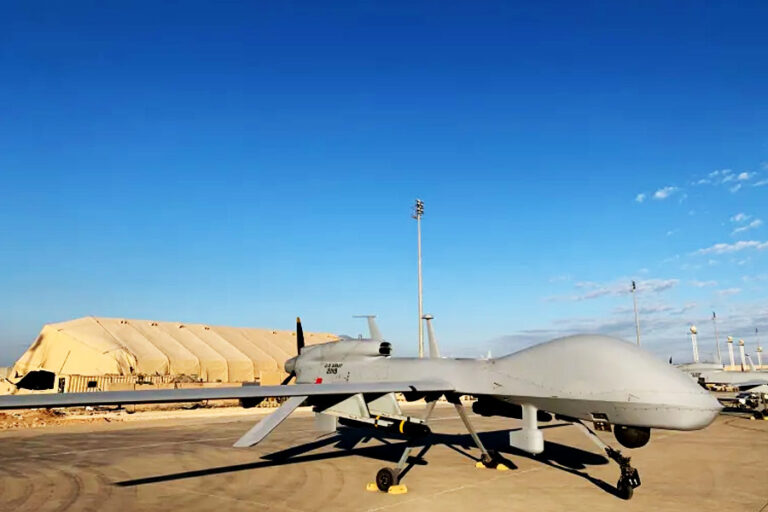News Desk, Kolkata : In a recent escalation of tensions, an airstrike targeted Iraq’s Al-Asad airbase, raising concerns across Western Asia and Europe. Reports indicate that multiple rockets and ballistic missiles struck the base early Monday morning, with Western media outlets providing extensive coverage. However, the Pentagon’s Central Command has not released any official information regarding the extent of the damage.
As of Monday evening, no nation or armed group, including Al-Assad forces, has claimed responsibility for the attack on the airbase. Speculation suggests the involvement of Iran and its supported militias in the region. The incident follows a series of events, including a missile strike in Damascus on Saturday night, resulting in the death of several Iranian military commanders. This attack is believed to be in retaliation for the earlier strike on the Israeli-controlled Golan Heights, which claimed the life of a prominent Iranian military leader, Saeed Razi Mousavi.
Amidst the rising tensions, Iran declared its readiness to retaliate against any aggression. The situation unfolds against the backdrop of over a decade of ongoing conflict in Syria. Iranian forces have actively participated in the Syrian civil war, supporting President Bashar al-Assad’s regime. On the other hand, the United States and Israel have provided assistance to anti-Assad rebels.
In a significant development last December, the Iranian military commander, Saeed Razi Mousavi, was assassinated in the Jaramana area near Damascus. Israel’s intelligence agency, Mossad, claimed responsibility for the operation. Following this, on Tuesday, there were allegations that Mossad executed a covert missile strike in both Iraq and Syria, further heightening regional tensions.
This recent airstrike on the Al-Asad airbase underscores the complexity of the geopolitical landscape in the Middle East. The power play involves various regional players, each pursuing its own interests, contributing to the ongoing turmoil in the region. The airbase, crucial for both Iraqi and coalition forces, now stands as a symbol of the fragile peace in the region.
As the international community closely monitors the situation, concerns about a potential wider conflict escalate. The uncertainty surrounding the extent of the damage and the absence of an official response from the Pentagon’s Central Command only add to the suspense.
In the midst of these geopolitical tensions, the story takes a darker turn with the recent targeting of the Al-Asad airbase. The narrative unfolds against a backdrop of historical animosities, proxy conflicts, and covert operations that have defined the region for years. As nations remain tight-lipped about their involvement, the world holds its breath, awaiting further developments in this volatile and intricate geopolitical chessboard.
DISCLAIMER
Our news media denounces any form of bias and disapproves of sensationalism. The disseminated news is entirely educational and aimed at social awareness. Our media maintains absolute impartiality, adhering solely to the purpose of education and social consciousness.


